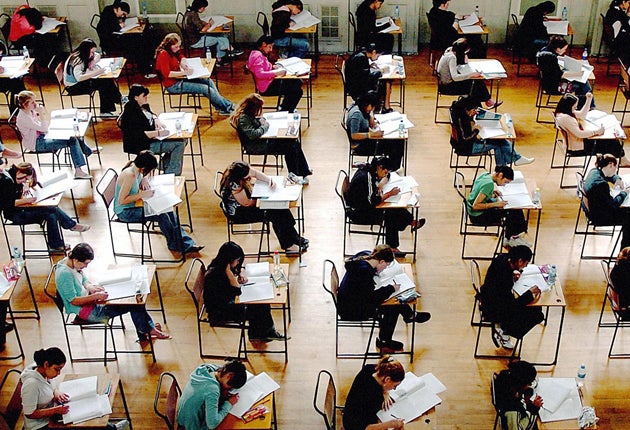Fairer to move A-level dates, says exams chief

A-levels should be brought forward to prevent school leavers from losing their places at university while their papers are being remarked, the head of the exams watchdog said today.
Kathleen Tattersall, who chairs the exams regulatory body Ofqual, said it was “totally unacceptable” that youngsters who successfully appealed against their grades often find themselves robbed of their places after missing university deadlines.
The issue has been highlighted this year due to the increased demand for university places as a result of the recession.
Hundreds of university hopefuls who failed to get the grades asked of them on A-level results day have achieved them through remarking – only to find their course no longer has a vacancy. They can usually defer their entry until the following academic year.
Ms Tattersall called for the exams to be brought forward to avoid a repetition of the debacle next year, and added that new technology should also mean the gap between pupils taking their exams and getting their results can be reduced.
She said exam boards could also reduce the time they spend carrying out emergency remarking, and that pressure should be placed on universities to hold open places until the process is finished.
She told the Headmasters’ and Headmistresses’ Conference (HMC): “How bad can it be for the student? First they are disappointed with their grades on A-level day, second they are elated by their appeal, and third they are disappointed when they find the place is no longer there. It is totally unacceptable. As a body we believe in safeguards for learners.”
She said she would welcome the views of heads as to whether “we could actually shave some time off when the exams are taken” by bringing A-levels forward.
“Technology has really improved, so can we have the results coming out earlier,” she added. “The universities must also be committed to holding the places. We don’t have authority over them but we have some friends who do have authority over them.”
Ofqual appears set to hold talks with UCAS, the university admissions service, and Universities UK, the body which represents vice-chancellors, to thrash out a solution to the problem.
Ms Tattersall’s intervention is likely to win support from both Labour and the Conservatives, but her aims could be achieved without any government intervention if the three higher education bodies can co-operate.
The issue was first raised by Geoff Lucas, secretary of the HMC, which represents 250 of the most elite independent schools including Eton and Harrow. He said about 20 of its members had brought it to his attention.
Figures show that last year, around 1,200 youngsters were successful in emergency appeals, which are held when a university place is at stake. The numbers are likely to be higher this year because the demand for places had led to universities admitting there is “less slack” to take in latecomers who have won their appeals.
In most cases, universities have said the youngsters could have a place next year.
In her speech to the HMC, Ms Tattersall also warned politicians to stop meddling with the country’s exams and qualifications system.
“How many initiatives have bitten the dust before they have got off the ground?” she asked. “We have wasted much time and expertise.”
She singled out General National Vocational Qualifications (GNVQs), which were scrapped to make way for the Government’s flagship new diplomas, as an example. The Conservatives have said they will scrap plans to introduce three new academic diplomas in science, languages and the humanities.
Subscribe to Independent Premium to bookmark this article
Want to bookmark your favourite articles and stories to read or reference later? Start your Independent Premium subscription today.

Join our commenting forum
Join thought-provoking conversations, follow other Independent readers and see their replies